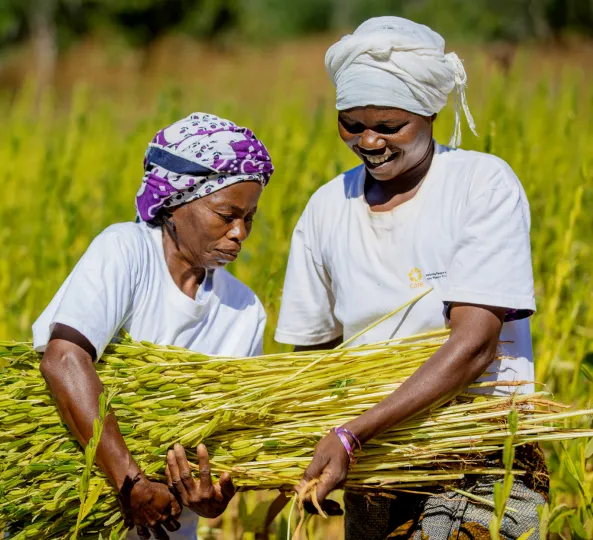
Nachingwea, a district in the uniquely biodiverse Ruvuma landscape, is one of Tanzania’s poorest regions. Its communities rely largely on subsistence farming and are increasingly subject to the impacts of climate change, such as erratic rainfall resulting in droughts and floods. Women are especially vulnerable to these events due to the gender roles and socioeconomic marginalization that reduce their access to information, resources, and decision-making power— and thus, their ability to contribute to climate change resilience. This brief presents key impacts and lessons drawn from various monitoring, evaluation, and learning methods implemented through the project. After a mixed-methods baseline quantitative household survey of 30 clusters randomly selected from 126 villages, including all six project villages, an independent endline survey evaluated households from three project villages regarding changes in natural resource management agricultural practices, and their well-being, among other things.
In the first half of 2024, CARE Uganda launched a social behavior change campaign (SBCC) targeting discriminatory gender norms that limit women’s and girls’ access to and use of technology, particularly smartphones. Media-based messaging is a widely-adopted approach for shaping community behaviors and attitudes and promoting public and financial health practices in front of a broad audience. CARE Uganda used this strategy to encourage communities to reflect on their beliefs regarding technology, especially those that restrict who can use and benefit from mobile technology. Read More
This report is a summary of CARE's activities in Poland and the Central and Eastern Europe region in 2023. 2023 marks second year of CARE's activities in Poland after its return because of the escalation of war in Ukraine. The Polish office is also active in Slovakia and Hungary, and supports CARE's efforts in Ukraine. With no end to the conflict in sight, CARE Poland has continued to provide humanitarian assistance, support integration efforts, and optimize our programs to better adapt to a protracted crisis. In 2023, we’ve reached more than 800,000 people with our 34 programs. Read More
The "Mudzi Wathu Village Bank" brief outlines an innovative digital financial platform tailored for Village Savings and Loan Associations (VSLAs) in Malawi. Developed through a collaboration between TNM Mpamba (Malawian MNO) and CARE Malawi, the platform enhances financial inclusion by integrating digital technology with traditional financial practices. Key features include the expansion of mobile money agents, affordable feature phones, and secure transactions through the *444# USSD service. Read More